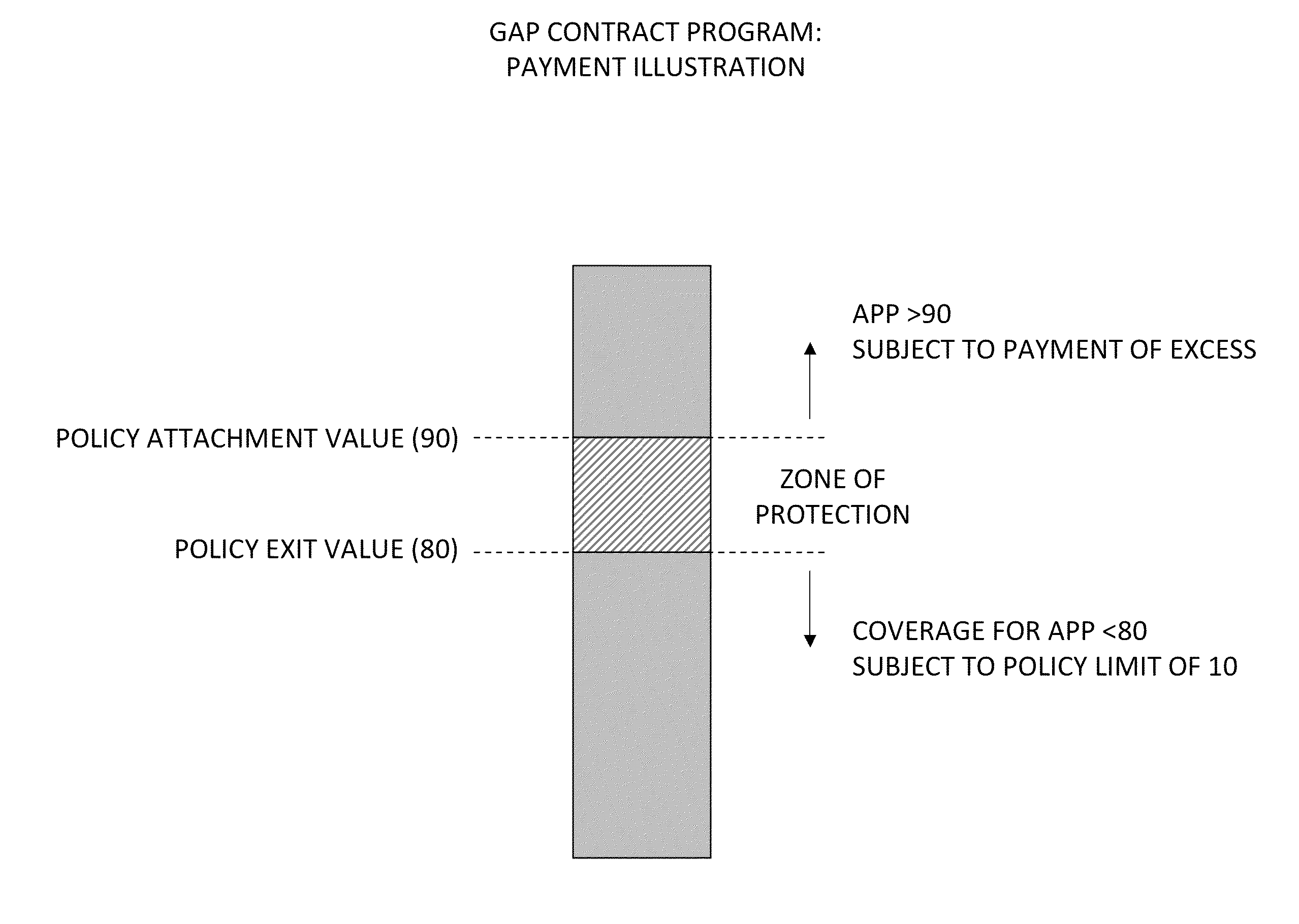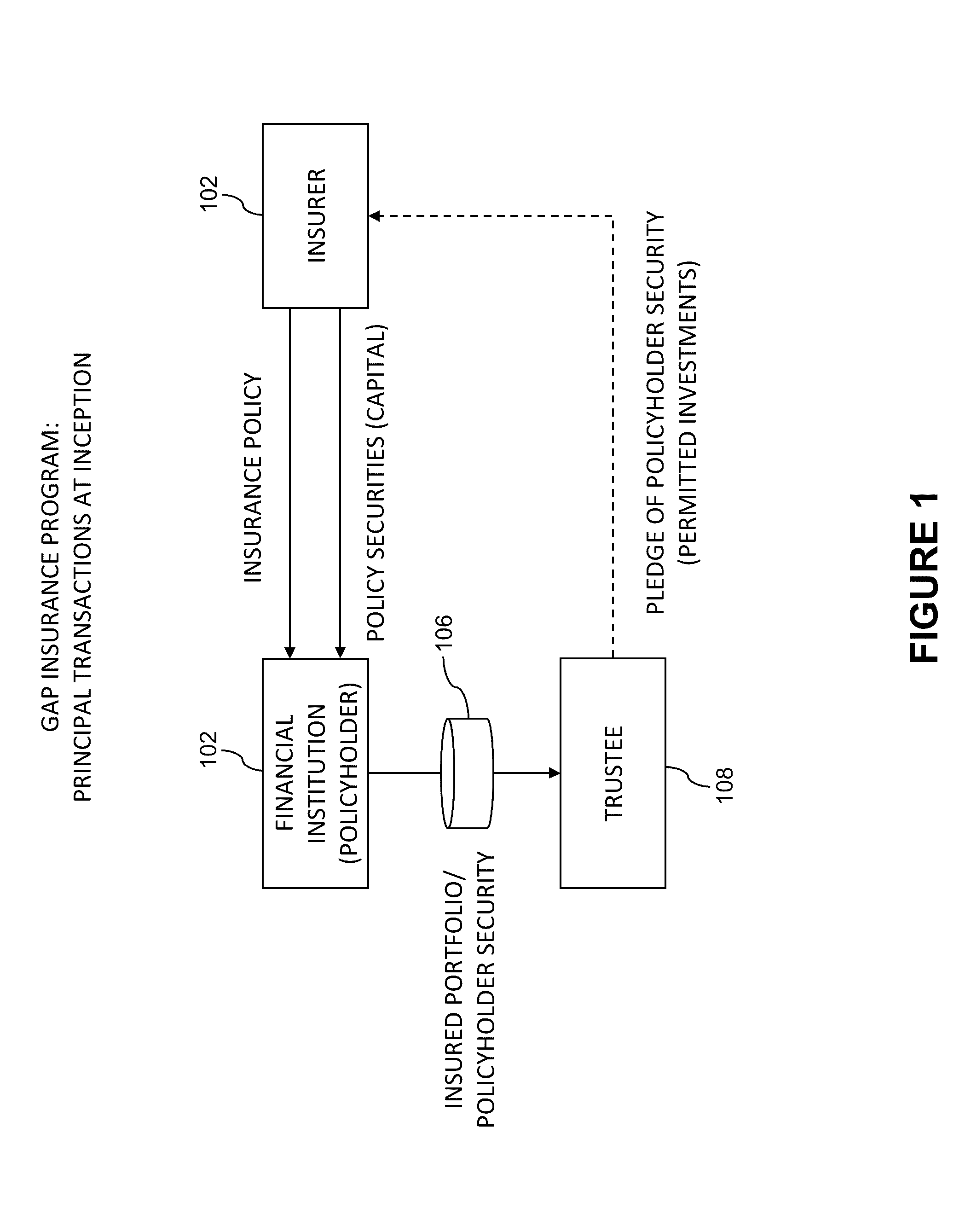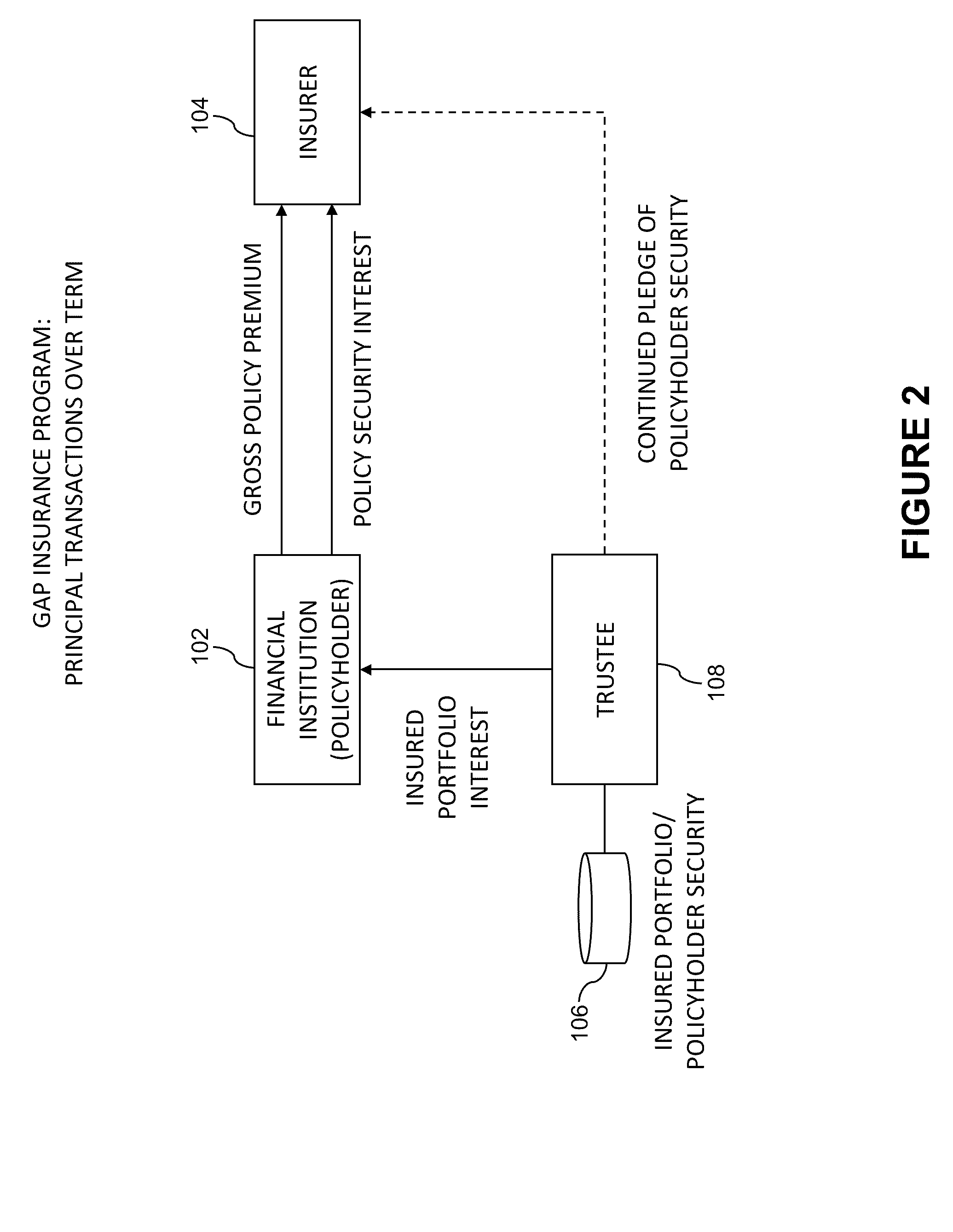System and method using insurance for risk transference
a risk transfer and insurance technology, applied in the field of system and method using insurance for risk transference, can solve the problems of affecting the value of fis under fair value accounting standards, investors largely exiting certain sectors of the fis market, and it is difficult to appropriately value, finance, or trade fis, etc., to avoid non-economic losses, counter adverse capital impact, and eliminate or transfer the non-economic risk of financial securities
- Summary
- Abstract
- Description
- Claims
- Application Information
AI Technical Summary
Benefits of technology
Problems solved by technology
Method used
Image
Examples
example 1
Insurance Program Example 1
[0043]In one example, a first party financial institution (the “Policyholder”) and a second party investment group (the “Insurer”) enter into an agreement to establish a gap insurance program for the mutual benefit of both parties. The parties select as the Insured Asset a FIS Portfolio (the “Insured Portfolio”) owned by the Policyholder which the Policyholder either determines to be undervalued in the current market, or desires to protect against future losses in value due to market conditions. In order to realize a capitalization of the FIS Portfolio that is more consistent with its perceived economic value, the Policyholder coordinates with or consults the Insurer or an investment advisor to develop a specific insurance program that takes into account the amount of economic and non-economic risk associated with the FIS Portfolio.
[0044]By agreement of the parties, the insurance program is established with a Policy Attachment Value of 90, a Policy Exit Va...
example 2
Insurance Program Example 2
[0053]In another example, a first party financial institution (the “Policyholder”) and a second party investment group (the “Insurer”) enter into an agreement to establish a gap insurance program for the mutual benefit of both parties. Referring generally to FIGS. 5-8, the parties have selected as the Insured Asset a FIS Portfolio (the “Insured Portfolio”) owned by the Policyholder 202 which the Policyholder either determines to be undervalued in the current market, or desires to protect against future losses in value due to market conditions. In order to realize a capitalization of the Insured Portfolio 206 that is more consistent with its actual economic value, the Policyholder 202 coordinates with or consults the Insurer 204 or an investment advisor 212 to develop a specific gap insurance program that takes into account the amount of economic and non-economic risk associated with the Insured Portfolio 206.
[0054]At the outset of the program, the face val...
PUM
 Login to View More
Login to View More Abstract
Description
Claims
Application Information
 Login to View More
Login to View More - R&D
- Intellectual Property
- Life Sciences
- Materials
- Tech Scout
- Unparalleled Data Quality
- Higher Quality Content
- 60% Fewer Hallucinations
Browse by: Latest US Patents, China's latest patents, Technical Efficacy Thesaurus, Application Domain, Technology Topic, Popular Technical Reports.
© 2025 PatSnap. All rights reserved.Legal|Privacy policy|Modern Slavery Act Transparency Statement|Sitemap|About US| Contact US: help@patsnap.com



